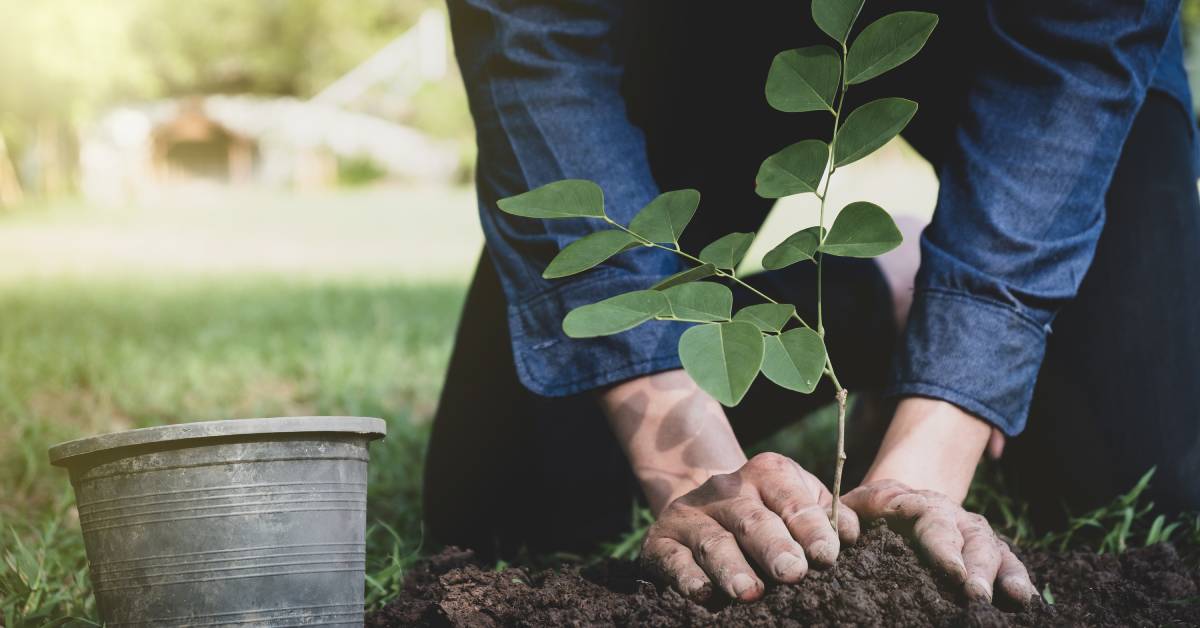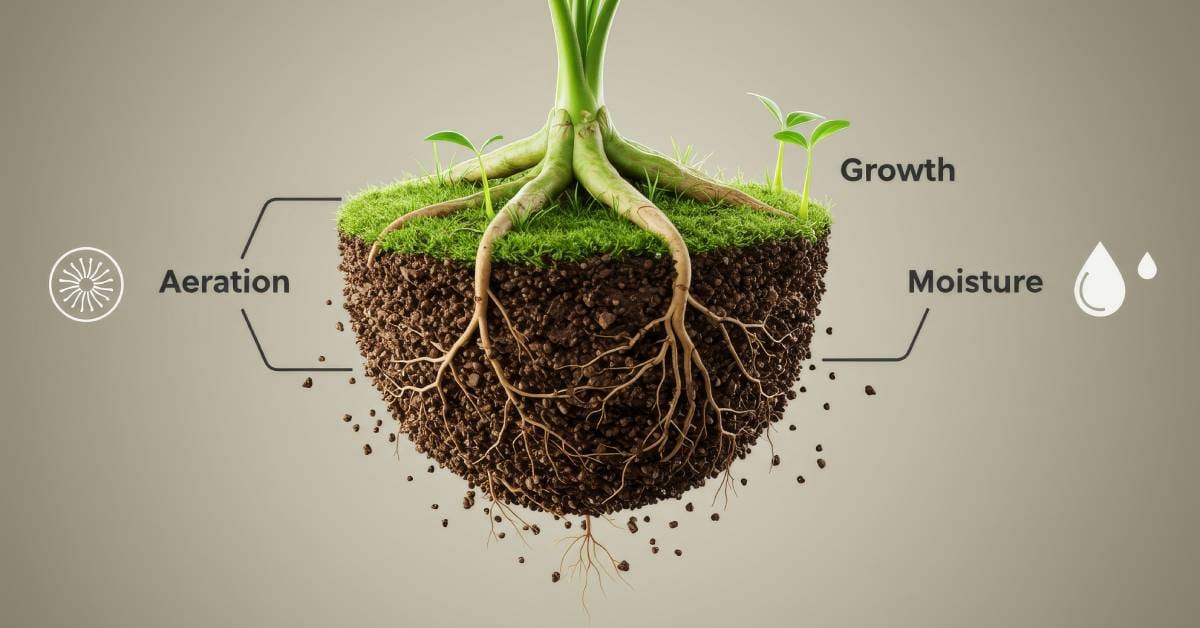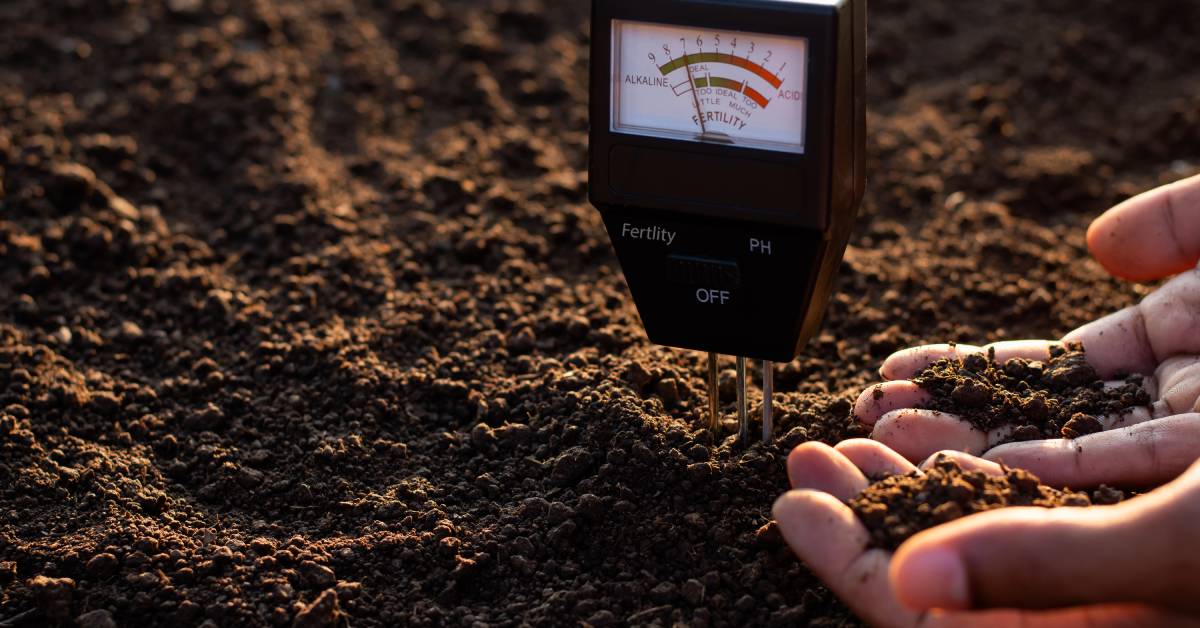A Brief Guide to How Soil Health Affects Tree Growth

Knowing how soil and tree health connect gives property owners the chance to make smart choices for their landscapes. When you understand what your trees need in order to thrive for years to come, it’s easier to create conditions where they can grow well. Use this brief guide to how soil health affects tree growth to maintain your property and keep your trees in good shape.
What Makes Good Soil Composition
Healthy soil is a mix of sand, silt, clay, organic matter, air, and water. Each of these elements helps keep trees and other plants strong.
Sand drains water quickly and prevents roots from sitting in soggy conditions. Clay holds onto nutrients and moisture when the weather is dry. Organic matter such as decomposed leaves and compost feeds tiny organisms in the soil and slowly releases nutrients for tree roots. The right mix also allows air and water to move through the soil so that roots can breathe and soak up what they need.
How Nutrients in Soil Support Tree Growth
Trees depend on nutrients such as nitrogen, phosphorus, and potassium to grow well and stay healthy. Soil stores these nutrients and passes them along to roots. However, when the soil doesn’t hold enough nutrients or can’t deliver them efficiently, trees may show signs of stress. Yellowing leaves, poor growth, and problems with pests or plant diseases are common warning signs.
Soil pH is also a consideration. Most trees do best when the soil is slightly acidic to neutral. If the pH strays too far in either direction, trees might not be able to absorb nutrients, even when those nutrients are present in the soil.

Finding the Right Balance of Water and Soil
Trees need both water and air in their root zone. That’s why soil structure matters. Good soil lets extra water drain out while holding enough moisture to get through dry weather.
When there is compact soil, water has a hard time soaking in, and air can’t move around the roots. Compacted areas often lead to weak, shallow roots. These roots can’t anchor the tree well or reach deeper layers where water and nutrients are more abundant.
Root Growth and Soil Density
Tree roots grow best in loose, well-aerated soil. They spread out and dig deep, giving the trees a steady base and better access to what they need underground.
In contrast, heavy, compacted soil forces roots to grow close to the surface. This can leave trees unstable during storms and more likely to suffer during dry spells or high heat. Trees with deeper, stronger roots often grow faster, live longer, and deal with pests and diseases more effectively.
Why Microorganisms Matter
Healthy soil contains bacteria, fungi, and other tiny organisms that work together to keep the soil in good shape. They break down organic matter, cycle nutrients, and form partnerships with roots. One example is mycorrhizal fungi, which grow around tree roots and boost nutrient absorption.
Chemical treatments and harsh conditions can break down this underground community. That’s why it’s important to support the natural processes that trees have relied on for thousands of years. Maintaining this balance can go a long way in supporting strong growth.
Testing for Unhealthy Soil
Leaves that turn yellow or drop early, branches that die back, or slow growth can all point to poor soil conditions. Trees may also seem more prone to insect damage or disease.
Look at the root system too. Roots growing along the surface or wrapping around the trunk could be signs of compacted or poorly draining soil.

Testing your soil gives you a better picture of what’s happening underground. A soil test can show you pH levels, nutrient content, how much organic material is present, and how well the soil holds water.
With this information, it’s easier to choose solutions that work for your yard or property instead of guessing or using inappropriate products. Regular testing can also catch small issues before they turn into bigger ones. Many problems develop slowly, so checking in from time to time keeps things on track.
Tips for Improving Soil Health
You can improve your soil without making invasive changes to the landscape. Adding compost, aged manure, or leaf mold can boost organic matter. Mulch is another simple way to improve soil. A layer of mulch helps the soil stay cool, holds in moisture, and breaks down over time to add organic material. Just avoid piling it directly against the tree’s trunk.
Make sure to keep heavy equipment off tree roots, manage watering carefully, and avoid using harsh chemicals unless absolutely necessary. These small steps prevent compacted soil and protect underground ecosystems.
Also, think about how your whole yard or landscape works together. Trees, shrubs, lawns, irrigation systems, and even where people walk all affect the soil. Taking a broader view can lead to better outcomes for every part of your outdoor space.
A certified arborist in Portland can recommend specific approaches based on your local soil conditions and tree types. Advice that fits your specific property leads to better long-term results.
Caring for Your Soil in the Long-Term
This brief guide about how soil health affects tree growth shows how trees that grow in healthy soil are stronger, easier to maintain, and better able to resist disease. Healthy trees also add more value and beauty to your property.
Compared to the cost of removing or replacing a struggling tree, improving the soil is usually a far more affordable choice. Whether you’re planting new trees or caring for ones already there, focusing on the surrounding soil’s health gives you a strong return on your investment.
If your trees aren’t growing as well as you’d like or if you just want to get ahead of any problems, start by learning more about your soil. Getting a professional assessment and creating a long-term care plan can make a noticeable difference. All Around Arbor offers full tree care services across Oregon, including soil analysis and improvement plans designed to support healthy growth. Reach out today to schedule a soil evaluation with one of our certified arborists.


Comments